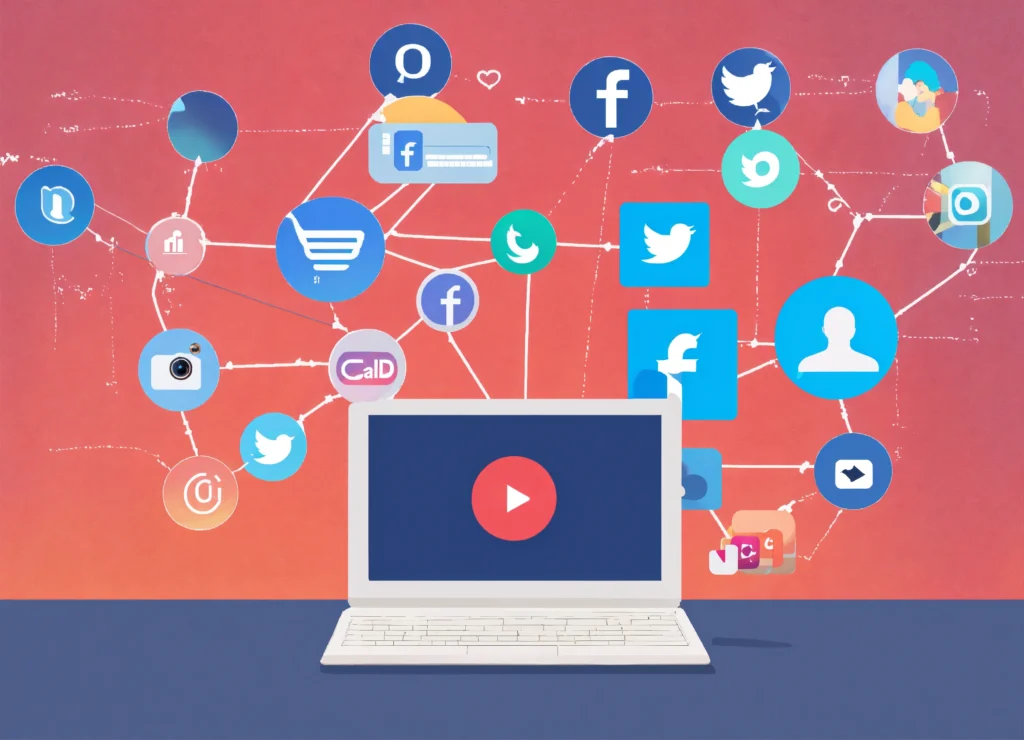Digital marketing has undergone a massive transformation over the past two decades. What started as a simple way to advertise on the internet has now become one of the most powerful tools for businesses to connect with their audiences worldwide. To better understand this evolution, we turn to the expertise of Firoze Kohli, a renowned digital marketing expert from the United States. With years of hands-on experience, Firoze Kohli has witnessed firsthand how digital marketing has adapted to changing consumer behavior, technology, and global trends.
The Early Days of Digital Marketing
When the internet became mainstream in the late 1990s, businesses quickly realized its potential as a marketing channel. The early stages of digital marketing were dominated by banner ads, email campaigns, and simple websites. However, these strategies were mostly one-way communication, with little opportunity for engagement. According to Firoze Kohli, this period was about businesses learning to adapt to digital spaces while consumers were just beginning to explore online platforms.
At that time, success was measured by impressions and clicks rather than meaningful connections. Companies were still experimenting with what worked, and there was little data to guide their efforts.
The Rise of Search Engines and SEO
The next major shift came with the rise of search engines like Google. Suddenly, being visible online meant optimizing websites to rank higher in search results. This gave birth to Search Engine Optimization (SEO), which is still one of the most powerful aspects of digital marketing today.
Firoze Kohli explains that SEO was revolutionary because it shifted the focus from businesses pushing ads to consumers actively searching for information. Marketers realized that providing valuable, keyword-rich content could attract organic traffic and build credibility. This was the foundation of inbound marketing strategies we see today.
The Social Media Revolution
In the mid-2000s, platforms like Facebook, Twitter, LinkedIn, and Instagram completely transformed the digital landscape. Social media made it possible for businesses to engage directly with their audiences in real-time. Instead of static ads, brands could now build communities, create conversations, and humanize their image.
Firoze Kohli emphasizes that social media was not just about promotion but about storytelling. Companies could showcase their values, interact with followers, and build trust. This shift made digital marketing more interactive and personal, helping brands foster long-term relationships with customers.
The Mobile-First Era
The rise of smartphones marked another major milestone. As more people accessed the internet on mobile devices, businesses had to rethink their strategies. Mobile apps, responsive websites, and location-based marketing became crucial.
According to Firoze Kohli, the mobile-first era pushed marketers to focus on convenience and user experience. Consumers expected information at their fingertips, and businesses that could deliver quick, seamless, and personalized experiences gained a competitive edge.
Data-Driven Marketing and Personalization
With the growth of technology came the ability to track, analyze, and understand customer behavior. Data-driven marketing became the backbone of digital strategies. From Google Analytics to advanced CRM tools, businesses could now measure ROI, segment audiences, and personalize content.
Firoze Kohli points out that personalization has been one of the most impactful changes in digital marketing. Consumers no longer want generic messages—they expect content tailored to their preferences. Data insights allow brands to deliver exactly what customers need, when they need it, increasing conversions and brand loyalty.
The Role of Artificial Intelligence and Automation
In recent years, artificial intelligence (AI) and automation have taken digital marketing to the next level. From chatbots that provide instant support to AI-powered ad targeting, technology is making campaigns smarter and more efficient.
Firoze Kohli explains that AI enables marketers to predict consumer behavior, optimize campaigns in real time, and enhance user experiences. Automation also saves time by handling repetitive tasks, allowing businesses to focus on creativity and strategy.
The Future of Digital Marketing
So, what does the future hold? According to Firoze Kohli, the future of digital marketing will revolve around even deeper personalization, immersive technologies like virtual reality (VR) and augmented reality (AR), and more transparent, ethical marketing practices. Consumers are becoming more aware of data privacy, so brands will need to prioritize trust and authenticity.
Moreover, video content, voice search, and AI-driven tools will dominate the industry, making it essential for businesses to stay adaptable. Firoze Kohli advises that those who continuously evolve with technology and consumer expectations will stay ahead in the competitive digital space.
Conclusion
The evolution of digital marketing is a story of innovation, adaptation, and connection. From simple banner ads to AI-powered campaigns, the industry has come a long way in just a few decades. Guided by experts like Firoze Kohli, businesses can understand these shifts and prepare for what’s next.
One thing is clear: digital marketing will continue to evolve, and those who embrace change will thrive. As Firoze Kohli highlights, success lies in staying customer-centric, leveraging technology, and building trust in an increasingly digital world.

